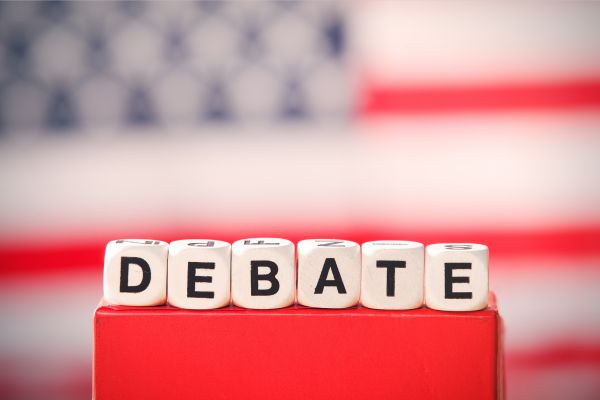In the ever-evolving realm of American politics, presidential debates have played a pivotal role in disseminating information to voters, influencing public sentiment, and facilitating the democratic process. However, recently, the United States has witnessed disputes concerning the relevance and necessity of these debates, including discussions on whether candidates should be mandated to participate. Presidential debates should persist with compulsory attendance to furnish diverse platforms for citizens to evaluate candidates and incorporate judicious consequences for those who abstain.
Presidential debates possess an illustrious history, their origins tracing back to the renowned Kennedy-Nixon debates of 1960. Subsequently, they have evolved into an essential facet of American politics. These debates furnish an exclusive opportunity for candidates to articulate their policy positions, defend their stances against scrutiny, and engage directly with their opponents. In a democracy that prizes well-informed decision-making, these debates stand as an indispensable method for voters to judge candidates aspiring to the highest echelon of leadership in the nation.
In a society inundated with a ceaseless news cycle, pervasive social media, and countless misinformation, these debates serve as a dependable font of unadulterated information, enabling voters to compare candidates’ positions objectively. This transparency ensures that voters can make informed choices when casting their ballots. An imperative function of modern-day presidential debates is to inform the electorate. These forums offer an exceptional avenue for candidates to directly convey their policies and perspectives on pressing issues to the American populace.
Additionally, presidential debates institute accountability for candidates and their pronouncements. When candidates are compelled to address probing questions and engage in live, in-depth discussions with their rivals, they are less inclined to offer nebulous or deceptive assertions. Debates bring incongruities or alterations in a candidate’s positions to the forefront, empowering voters to assess their credibility. Requiring candidates to participate in nationally televised discussions pushes candidates to put forth cohesive policy positions or arguments while subjected to indispensable scrutiny.
Furthermore, presidential debates foster civic engagement and invigorate participation in the electoral process. These occurrences attract myriad viewers, both domestically and globally, who immerse themselves in political discourse. The debates stimulate dialogues among acquaintances, family, and colleagues, galvanizing voter registration and turnout. Observing these debates is the initial step toward heightened political awareness and engagement for numerous citizens.
Our political process must enforce candidates’ participation to uphold the tenets of democracy and ensure accountability to the American populace. The presidency is not merely another vocation; it constitutes the highest office in the land, and those aspiring to it should be willing participants in the democratic process to substantiate their suitability for the role.
Nonetheless, any obligatory requirement should entail reasonable consequences for non-compliance. These repercussions should not be overly punitive but, instead, function as a deterrent to discourage candidates from evading their duty to engage with the electorate. For instance, candidates declining debate participation could be rendered ineligible for federal campaign funding or be subject to constraints on future electoral involvement. These repercussions should be meticulously devised to balance ensuring candidates’ accountability and respecting their freedom of choice.
Recognizing that not all candidates may possess uniform levels of debating experience or resources is crucial. To address this concern, impartial entities should coordinate and moderate debates to guarantee fairness. Additionally, candidates should have access to equitable financial support to defray the expenses of participating in presidential debates.
The contemporary role of presidential debates in American politics is more critical than ever. These debates serve as an indispensable source of information, accountability, and civic engagement, and they should continue to be an integral component of the electoral process. Imposing candidates’ participation in debates is indispensable to upholding democratic principles, yet any consequences for non-participation should be equitable. By preserving and elevating the stature of presidential debates, we can ensure that voters make informed choices and that candidates are answerable for the policies they aspire to implement when entrusted with the nation’s leadership.
![]()
- United States
